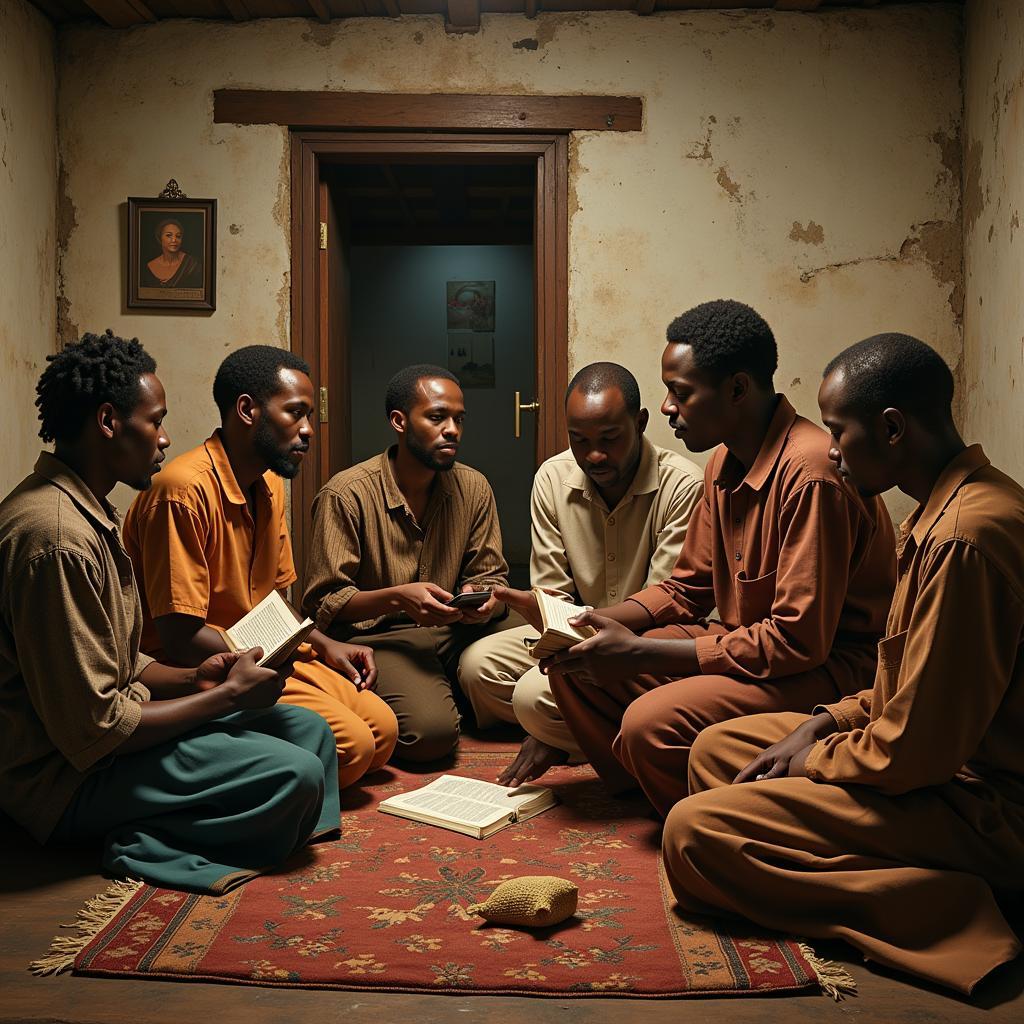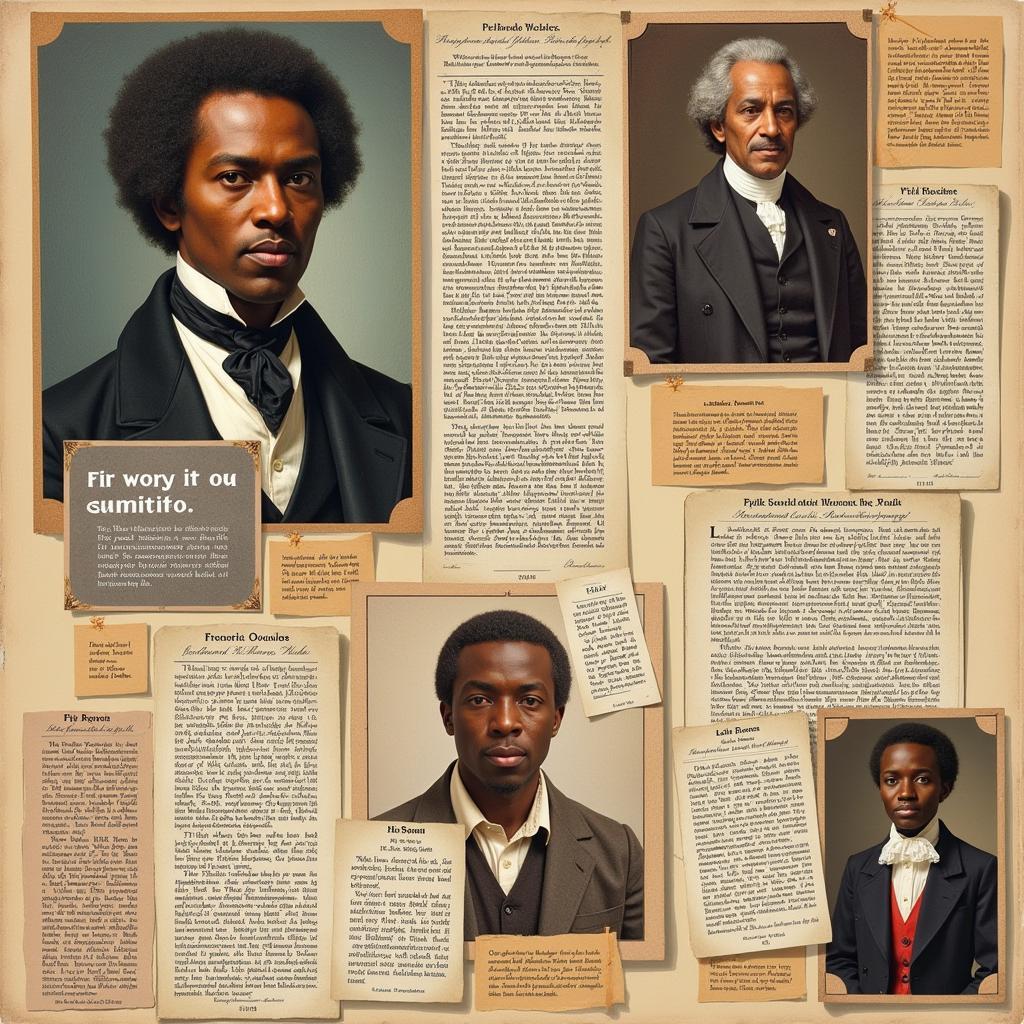Exploring the Rich Tapestry of African Diaspora Literature
African Diaspora Literature is a powerful and diverse body of work that reflects the experiences, histories, and cultures of people of African descent living outside of the African continent. This literature offers a unique lens through which to understand the complexities of identity, displacement, colonialism, and the search for belonging in new lands. From the poignant narratives of enslaved Africans to the contemporary voices exploring themes of race, gender, and globalization, African diaspora literature continues to shape global literary landscapes and challenge conventional perspectives.
Historical Roots and Defining Characteristics
The roots of African diaspora literature can be traced back to the transatlantic slave trade, a period marked by forced migration and the brutal uprooting of millions of Africans from their homelands. Enslaved Africans developed unique forms of oral storytelling and musical traditions that served as vehicles for preserving their cultural heritage and expressing their resistance against oppression. These early forms of cultural expression laid the groundwork for the development of a distinct literary tradition.
 Early Forms of African Diaspora Literature
Early Forms of African Diaspora Literature
As Africans were dispersed across the Americas and the Caribbean, they began to document their experiences in written form. Early examples of African diaspora literature often centered around themes of enslavement, freedom, and the search for identity in a new world. These works served as powerful indictments of the horrors of slavery and gave voice to the struggles and aspirations of African people living under colonial rule.
 Key Authors and Works in African Diaspora Literature
Key Authors and Works in African Diaspora Literature
Key Themes and Literary Movements
African diaspora literature is characterized by a recurring set of themes that reflect the shared historical and cultural experiences of people of African descent worldwide. These themes often intersect and overlap, creating a rich and complex tapestry of narratives.
- Identity and Belonging: The search for identity and belonging is central to much of African diaspora literature. Uprooted from their ancestral homes and subjected to cultural erasure, writers grapple with questions of race, ethnicity, and what it means to belong in societies shaped by colonialism and racial hierarchies.
- Memory and History: Reclaiming and reinterpreting history is another important theme. Many writers engage with the legacy of slavery and colonialism, seeking to give voice to silenced narratives and challenge dominant historical accounts.
- Displacement and Migration: The experience of displacement, both physical and psychological, is a defining feature of the African diaspora. Writers explore the challenges of adapting to new environments, navigating cultural differences, and the longing for a lost homeland.
- Resistance and Resilience: Despite the trauma of displacement and oppression, African diaspora literature is also marked by themes of resistance, resilience, and the celebration of African culture and heritage.
Global Influence and Contemporary Voices
Over the centuries, African diaspora literature has evolved into a global phenomenon, encompassing a vast range of genres, styles, and perspectives. From the Caribbean literary renaissance of the mid-20th century to the emergence of new voices from the African continent and its diaspora, contemporary writers continue to push the boundaries of the genre. They explore the complexities of identity in a globalized world, addressing issues such as gender, sexuality, class, and the ongoing legacies of colonialism.
Today, African diaspora literature is recognized for its significant contributions to world literature. It has played a vital role in challenging stereotypes, promoting cross-cultural understanding, and amplifying the voices of marginalized communities.
FAQs about African Diaspora Literature
1. What are some key characteristics of African diaspora literature?
African diaspora literature often explores themes of identity, displacement, memory, and the search for belonging. It is characterized by a focus on the experiences of people of African descent living outside of the African continent, particularly in the Americas and the Caribbean.
2. Who are some prominent authors in African diaspora literature?
Some prominent authors include:
- Phillis Wheatley: An enslaved African American poet who published her first book in 1773.
- Frederick Douglass: A formerly enslaved African American who became a leading abolitionist and author.
- Olaudah Equiano: A writer and abolitionist who recounted his experiences being kidnapped and enslaved in his autobiography.
- Toni Morrison: A celebrated American novelist known for her powerful explorations of race, history, and trauma.
- Chinua Achebe: A Nigerian novelist who is considered one of the founding fathers of African literature.
- Zadie Smith: A contemporary British novelist known for her witty and insightful portrayals of multicultural London.
3. Why is African diaspora literature important?
This literature provides invaluable insights into the historical and ongoing consequences of colonialism, slavery, and racism. It gives voice to marginalized communities, challenges dominant narratives, and promotes cross-cultural understanding.
Exploring Further
To delve deeper into this rich literary landscape, you can explore the works of the authors mentioned above and discover new voices. Online resources, academic journals, and literary magazines offer a wealth of information on African diaspora literature. Engaging with this literature is an enriching experience that can broaden perspectives, spark important conversations, and inspire greater empathy and understanding in our interconnected world.
For those seeking further assistance in navigating the complexities of African culture and life, our team is always available to help. Contact us at +255768904061 or [email protected]. You can also visit us at Mbarali DC Mawindi, Kangaga, Tanzania. We have a dedicated customer service team available 24/7 to assist you.

